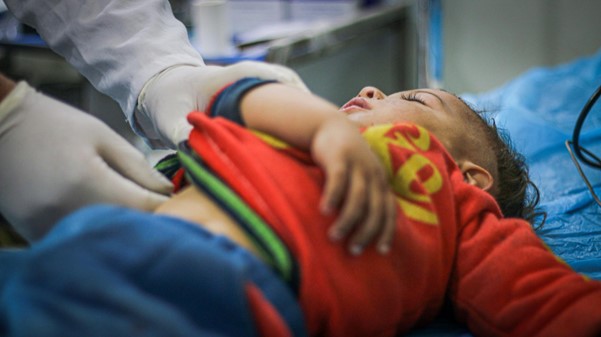Understanding Meckel’s diverticulectomy is essential for parents whose children may face this medical condition. Meckel’s diverticulum is a congenital issue found in about 2% of the population, making it a common gastrointestinal malformation in children. It develops when there’s a small pouch in the lower intestine, a leftover from the time a baby is in the womb. During fetal development, tissue is supposed to be absorbed, but sometimes it isn’t, leading to this kind of pocket.
Some factors can play a role in the formation of Meckel’s diverticulum. While genetics might influence its occurrence, environmental factors aren’t well-defined. For parents, knowing about this condition helps create a foundation of understanding, enabling them to better communicate with healthcare providers and address their child’s needs effectively.
Recognizing Symptoms and When Surgery is Needed
Being aware of potential symptoms of Meckel’s diverticulum can help parents take timely action. Here are a few common signs:
- Gastrointestinal bleeding: This might lead to blood in stool which is a sign to watch for.
- Abdominal pain: Persistent belly pain can be alarming and indicative of Meckel’s diverticulum.
- Infection risk: Though not always, infection can occur if the diverticulum gets inflamed.
Meckel’s diverticulum diagnosis usually involves a combination of medical history, imaging tests, and sometimes a physical exam. If complications of Meckel’s diverticulum, like bleeding or blockage, arise, surgery might be necessary.
Sometimes, a simple imaging test can be helpful, but surgery becomes essential when complications are severe. Not every Meckel’s diverticulum requires removal, but if there’s frequent bleeding or a risk of intestinal blockage, a Meckel’s diverticulectomy may be advised.
Parents should guide their children and seek medical advice promptly if symptoms appear to ensure their child remains healthy and comfortable. Engaging with healthcare professionals helps alleviate concerns and clarifies why surgery is sometimes the best option for a child’s wellbeing.
Types of Meckel’s Diverticulectomy: What to Expect
When surgery is needed, understanding Meckel’s diverticulectomy options is crucial. There are two main procedures to treat a Meckel diverticulum:
- Open surgery: This is the traditional method where a larger incision is made to remove the diverticulum.
- Laparoscopic Meckel’s diverticulectomy: A minimally invasive technique using small incisions and a camera to guide the surgery.
There have been great advances in surgical methods, allowing more children to benefit from less invasive options. Laparoscopic surgery usually results in shorter recovery times and fewer risks.
During the Meckel’s diverticulectomy procedure, the surgeon removes the diverticulum through careful techniques. Explaining in simple terms, this means gently removing the pouch without disturbing the surrounding intestines. The operation lasts about an hour, and with the minimally invasive technique, recovery is faster.
Local UAE experts highlight that modern surgical techniques not only cause less visible scarring but also significantly reduce postoperative discomfort for the child.
The recovery period varies but usually involves:
- Dietary changes: Temporary soft diet gradually returning to normal foods.
- Activity moderation: Gradual return to normal activities, avoiding strenuous actions initially.
- Regular follow-ups: Ensuring proper healing and handling any Meckel’s diverticulum complications after surgery.
Doctors recommend parents ensure their children follow post-surgery guidelines, encouraging rest and light activities to foster swift healing. Monitoring the child closely for any signs of surgical complications and maintaining open communication with medical professionals adds reassurance during recovery.
Long-term Outlook and Support for Your Child
After surgery, the long-term outlook for children is generally positive. Recovery times can vary, but most children bounce back within weeks. Potential complications from Meckel’s diverticulitis treatment can include infection or bowel obstruction, but such risks are low with proper care.
Surgery is recommended based on factors such as symptom severity and risks of recurrent bleeding or blockage. While genetic and environmental factors can influence Meckel diverticulum complications, surgery effectively eliminates the diverticulum, addressing the primary concern.
Many parents worry about the recurrence of issues; however, it’s relieving to note that the likelihood of facing Meckel diverticulum rupture or similar problems is low after treatment. Educating oneself on these aspects alleviates fears, and with informed healthcare choices, parents can lead their child’s health journey confidently.
Defense from myths surrounding Meckel’s diverticulum enables parents to focus on factual health outcomes. Open conversations with healthcare providers ensure they remain advocates for their child’s health, reinforcing recovery and a healthy future.

